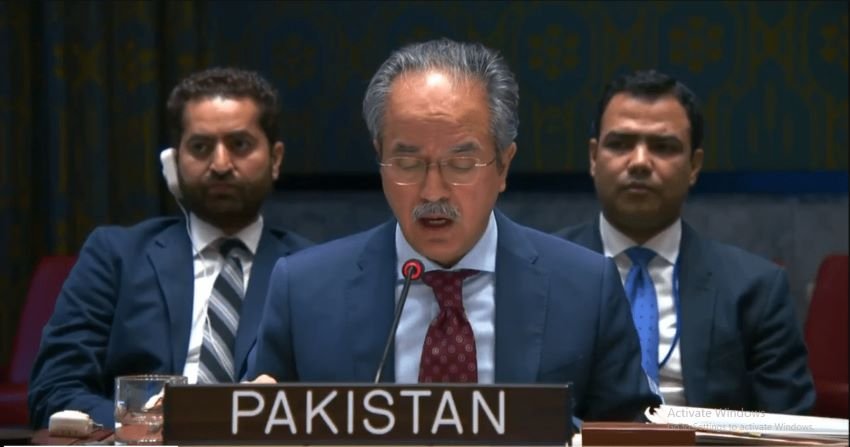United Nations (TDI): As Haiti continues to spiral into violence and instability, Pakistan has called on the UN Security Council to take immediate and decisive action to help restore peace and governance in the Caribbean nation.
Chairing the Council’s first meeting under Pakistan’s presidency for the month of July, Ambassador Asim Iftikhar Ahmad, Pakistan’s permanent representative to the United Nations, warned that Haiti’s crisis had reached a breaking point.
“The time for half-measures is over,” he told the 15-member Council. “Haiti’s streets have become battlegrounds. Gangs are operating with impunity, vigilante killings are rising, and children are being pulled into armed groups. Basic services have collapsed. Hundreds of thousands live in fear, facing extreme hunger and uncertainty.”
Speaking in his national capacity, the Pakistani envoy stressed that restoring order in Haiti requires not only urgent security measures but also long-term political unity and local ownership of the recovery process.
“The country needs responsible leadership that can build national consensus and guide Haiti out of this crisis through a Haitian-led and Haitian-owned process,” he added.
Ambassador Asim Iftikhar expressed Pakistan’s support for the ongoing efforts of Kenya and other nations contributing to the Multinational Security Support (MSS) mission in Haiti.
He urged the Security Council to ensure the mission is not only well-resourced and robust, but also equipped to help build Haiti’s institutions, including its police, judicial system, and governance structures.
Read More: Pakistan Urges Stability as Haiti Teeters Amid Gang Violence
“Anything less risks collective failure tomorrow,” he warned. “The people of Haiti deserve to live in peace and dignity, free from fear and deprivation.”
He affirmed that Pakistan stands ready to work with fellow Council members to forge consensus on an effective response. “We are prepared to play our part in delivering hope and security to the Haitian people,” he said.
At the start of the session, Miroslav Jenca, Assistant Secretary-General for Europe, Central Asia and the Americas, painted a grim picture of the situation on the ground.
He described a “sharp erosion of state authority” and said that Port-au-Prince, the Haitian capital, had become paralyzed by gang violence and cut off due to suspended international flights.
“Gangs now have a presence in nearly every commune in and around the capital,” he said, adding that unless the international community steps in quickly, “a total collapse of state control” could soon become reality.
Read More: Trump Threatens Deportation of Haitian Immigrants
Ghada Fathi Waly, head of the UN Office on Drugs and Crime (UNODC), echoed those concerns in her briefing from Vienna. She noted that gangs now control key trade routes, which has crippled Haiti’s economy and worsened an already catastrophic food and humanitarian crisis.
“As the state loses ground, so does its ability to function,” Waly said. “Commerce has been strangled, and with it, any hope of stability.”
With the situation growing more desperate by the day, Pakistan’s call for bold, united international action struck a chord during the Council’s first meeting under its July leadership.
Farkhund Yousafzai is an Associate Editor at The Diplomatic Insight.



